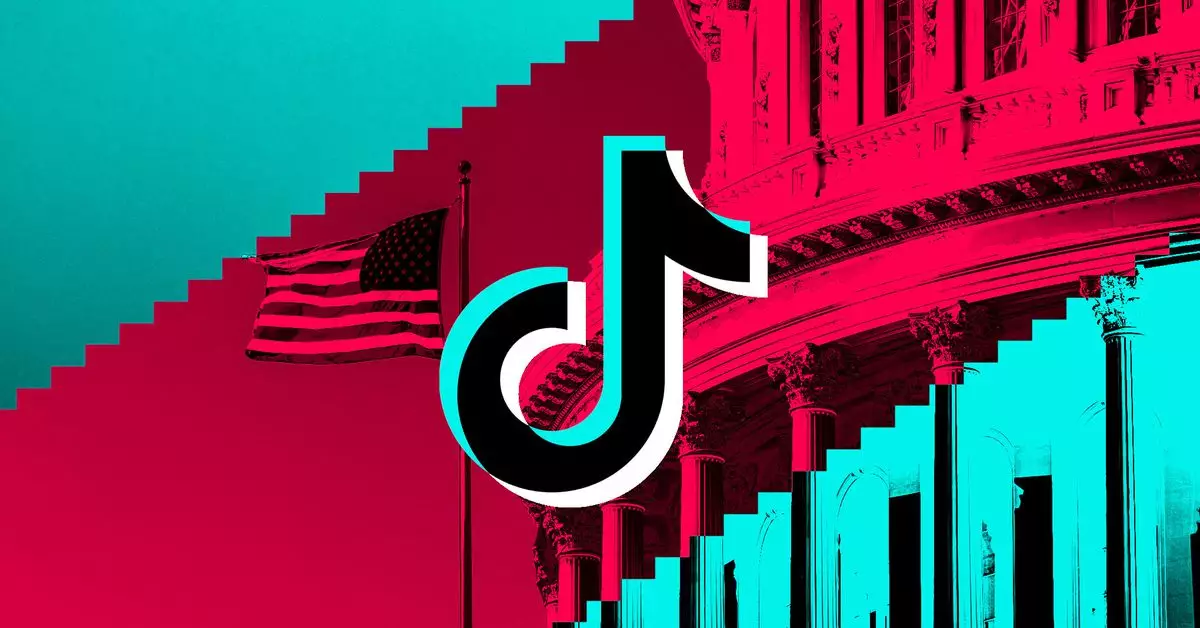The ongoing saga surrounding TikTok and its relationship with the U.S. government epitomizes the intricate and often contentious interplay between technology, foreign investment, and regulatory frameworks. Recently, former President Donald Trump’s administration attempted to navigate this treacherous landscape through an executive order aimed at unwinding TikTok’s ties to its Chinese parent company, ByteDance. This effort has not only reignited the conversation regarding national security and foreign adversaries but has also prompted critical discussions about executive power and the rule of law.
The executive order issued by Trump on his first day in office directs the Department of Justice (DOJ) to pause enforcement of existing restrictions on TikTok, allowing for a temporary grace period of 75 days. This move raises alarms about the president’s ability to unilaterally enforce or bypass laws established by Congress. In essence, this executive action seeks to extend the deadline previously set by The Protecting Americans from Foreign Adversary Controlled Applications Act, which mandated ByteDance to divest its stake in TikTok or face restrictions.
Critics of Trump’s order argue that it undermines the legislative process, circumventing a bipartisan law that was designed to address concerns over data privacy and national security. By urging American tech giants like Apple and Google to continue their dealings with TikTok, Trump potentially invites significant legal ramifications for these companies, igniting fears of colossal fines should compliance be disregarded. The implications of such legal entanglements could influence corporate strategies significantly, deterring companies from maintaining associations with the app due to fears of historic liabilities.
Legal Ambiguities Surrounding the Ban
While an executive order might offer temporary relief, it introduces a tapestry of complexities regarding its legality. After the law took effect on January 19, 2025, questions loom over whether the deadline can indeed be extended post-enactment without a formal sale initiated by ByteDance. The problematic framing of Trump’s directive evokes a sense of uncertainty—not just for TikTok, but for the larger tech ecosystem, where established rules regarding foreign ownership hang in limbo.
Furthermore, the legislative landscape surrounding this issue is fraught with lack of clarity. The existing law permits a 90-day extension if ByteDance were to announce a sale to a non-foreign adversary entity; however, with no such announcement on the horizon, the legal ground is shaky at best. The ramifications of Trump’s attempt to override existing legislation, while seemingly intended to protect American jobs and investment, rest heavily on the question of how much authority a sitting president can wield when it conflicts with established law.
As companies ponder their next steps, they grapple with the hefty potential of penalties—estimated to be as high as $850 billion—should they choose to disregard the law. It is a precarious balancing act for American tech firms, caught between their desire to secure a slice of TikTok’s sizable user base and the daunting specter of violating a law upheld by the courts. In this precarious environment, businesses must weigh the possibility of legal repercussions against the economic incentives of engaging with a wildly popular platform.
Moreover, the executive order, despite appearing to offer some shield of protection, openly states it does not create enforceable rights against the United States. This stipulation significantly weakens any potential legal defense for companies engaged with TikTok and underscores the tenuous position of corporate compliance in a volatile regulatory environment.
The Enigmatic Future of TikTok
As Trump suggests the possibility of a joint venture that would give the U.S. government ownership stakes in TikTok, numerous questions arise about the operational logistics and overarching strategic implications. The viability of such a plan remains ambiguous, and many stakeholders—including legal experts—are left speculating.
Ultimately, the TikTok drama is emblematic of broader contradictions facing U.S. policy—the tug-of-war between protecting national interests and fostering innovation and competition. As both advocates and opponents of stringent regulations voice their views, the reality is that the future of platforms like TikTok will hinge on a mixture of regulatory savvy, corporate strategy, and public sentiment. In this rapidly evolving scenario, the world will be watching closely to see how this complex web of technology and governance unfolds.


Leave a Reply